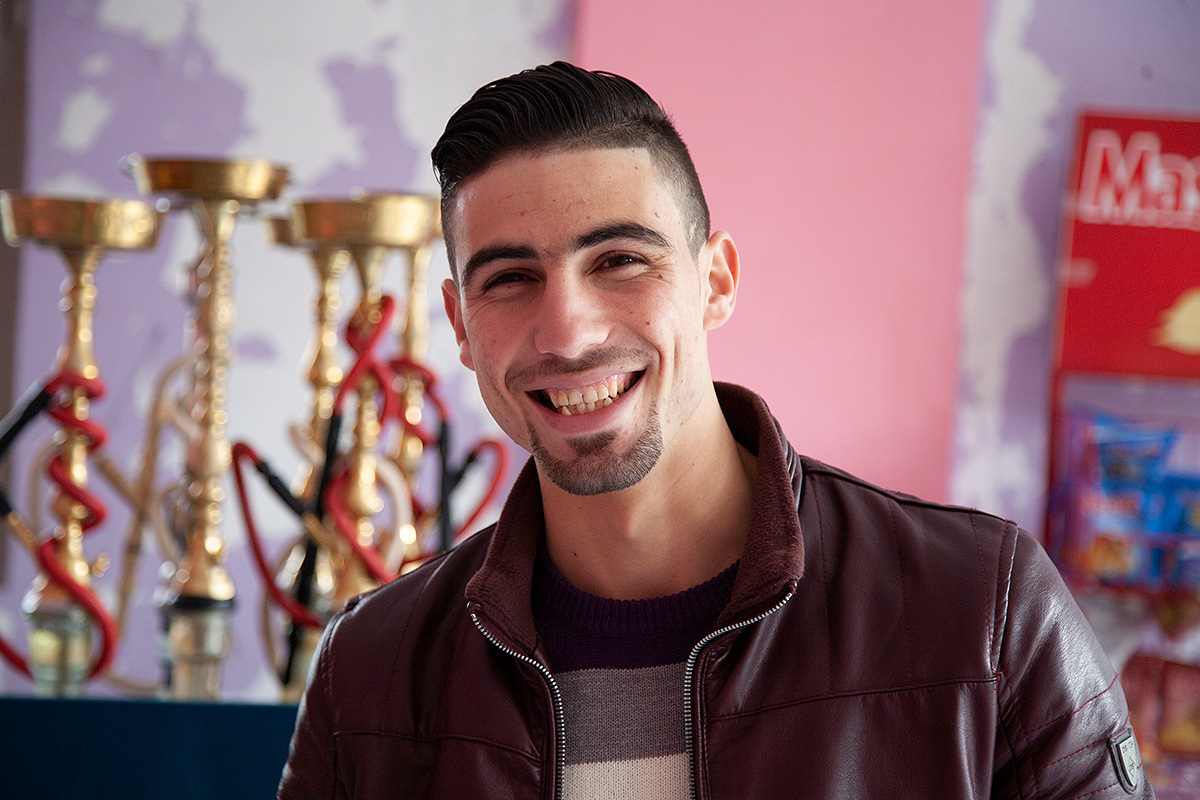
“I participated in an activity organized by Diwan for stateless people to claim our right to an ID…. I’m doing my best to be a part of this community.”
Wadi Khaled is one of the most impoverished and politically marginalized areas of Lebanon. Most of its residents did not receive full citizenship rights for more than four decades. In recent years, Wadi Khaled has also become home to thousands of refugees fleeing the war in Syria.
Hamza, a 19-year-old coffee shop owner, is one of many residents fighting for his rights.
“My little brother Bakr and I are stateless,” Hamza says. “I have faced the consequences of that my entire life. The problems and obstacles are countless.”
Despite training as a nurse, Hamza lacks official documentation for that role. He has looked instead for jobs at non-governmental organizations, inevitably running into fresh challenges.
“Wherever I work, after weeks or months, they ask me for my ID,” he says. “I try to stall them, but then what? ‘You don’t have your ID, you’re not Lebanese’ they say. They all dismissed me.”
Then Hamza encountered Diwan, a program run by Search for Common Ground and funded by Global Affairs Canada. Diwan aims to give a platform to marginalized voices, build trust between citizens and local leaders, and mend social divisions.
As part of Diwan, Hamza joined an effort to help stateless people like himself secure an identification card. The experience left him feeling empowered, so he decided to bring some lessons back to his own world.
Hamza had recently started a coffee shop called C’est la Vie, so he gathered 20 people there for a discussion about the rights of the community.
“People were shocked. Even my elder uncle congratulated me,” says Hamza, explaining that young people face extra hurdles in a society where “the elder knows best.”
Hamza’s encounter with Diwan has stoked a new passion in the 19-year-old. He recalls talking with another stateless person, who reprimanded Hamza for “embarrassing” himself by bringing sensitive identity issues into the open. Rather than giving in, Hamza insisted that speaking out was his right—that all people, whether stateless or not, deserved respect.
“I keep a large smile on my face,” Hamza says. “And why not? ‘C’est la vie’, that’s life. It will go on wherever you are and whatever you do.”